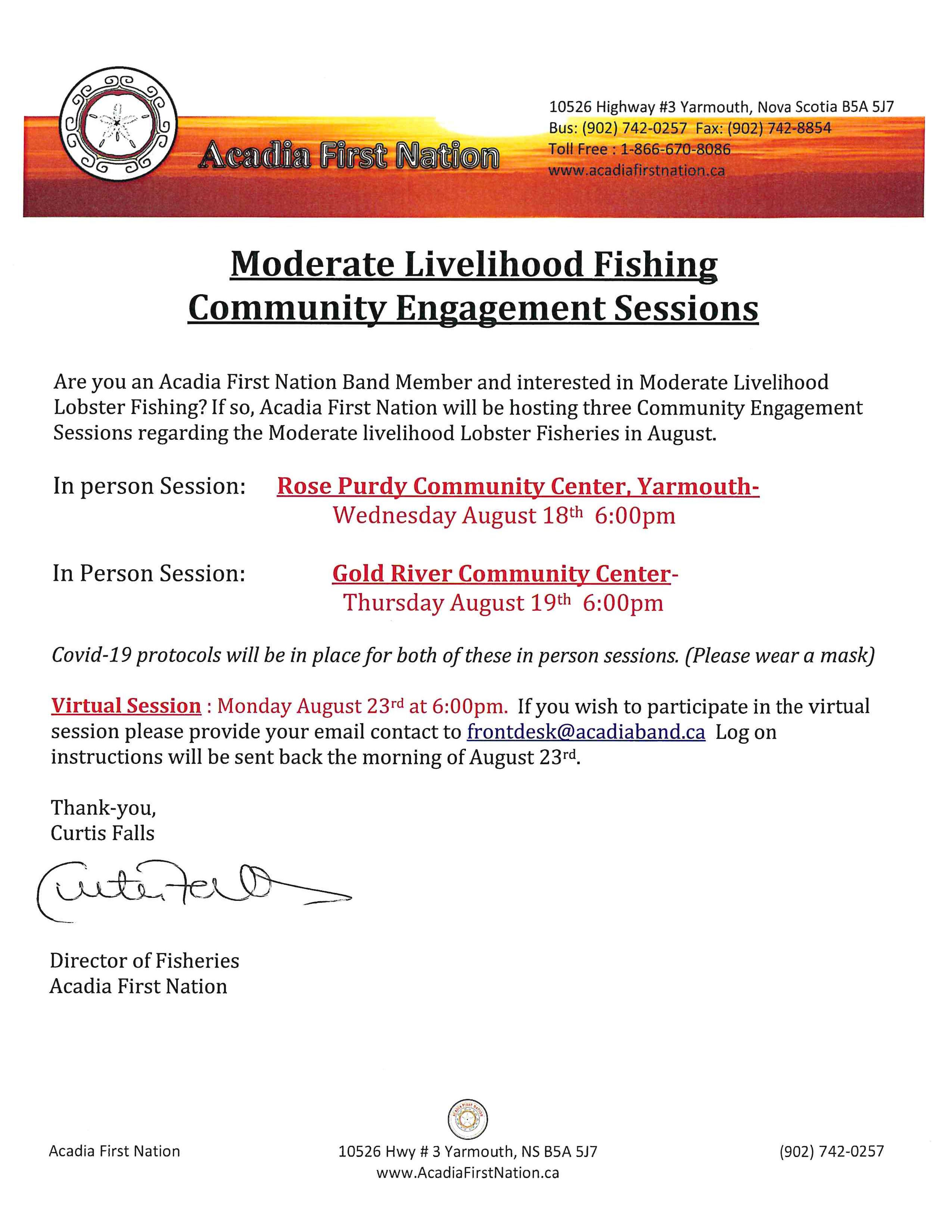News
Myth Busters Indian Tax Exemption Education Campaign
- Published: November 23 2021 14:51
The “myth busters” educational campaign, seeks to debunk common myths and stereotypes about Mi’kmaq and Indigenous taxation. This campaign is targeted at the general public, store employees, and store owners.
We encourage you to share these campaign materials on your social media.
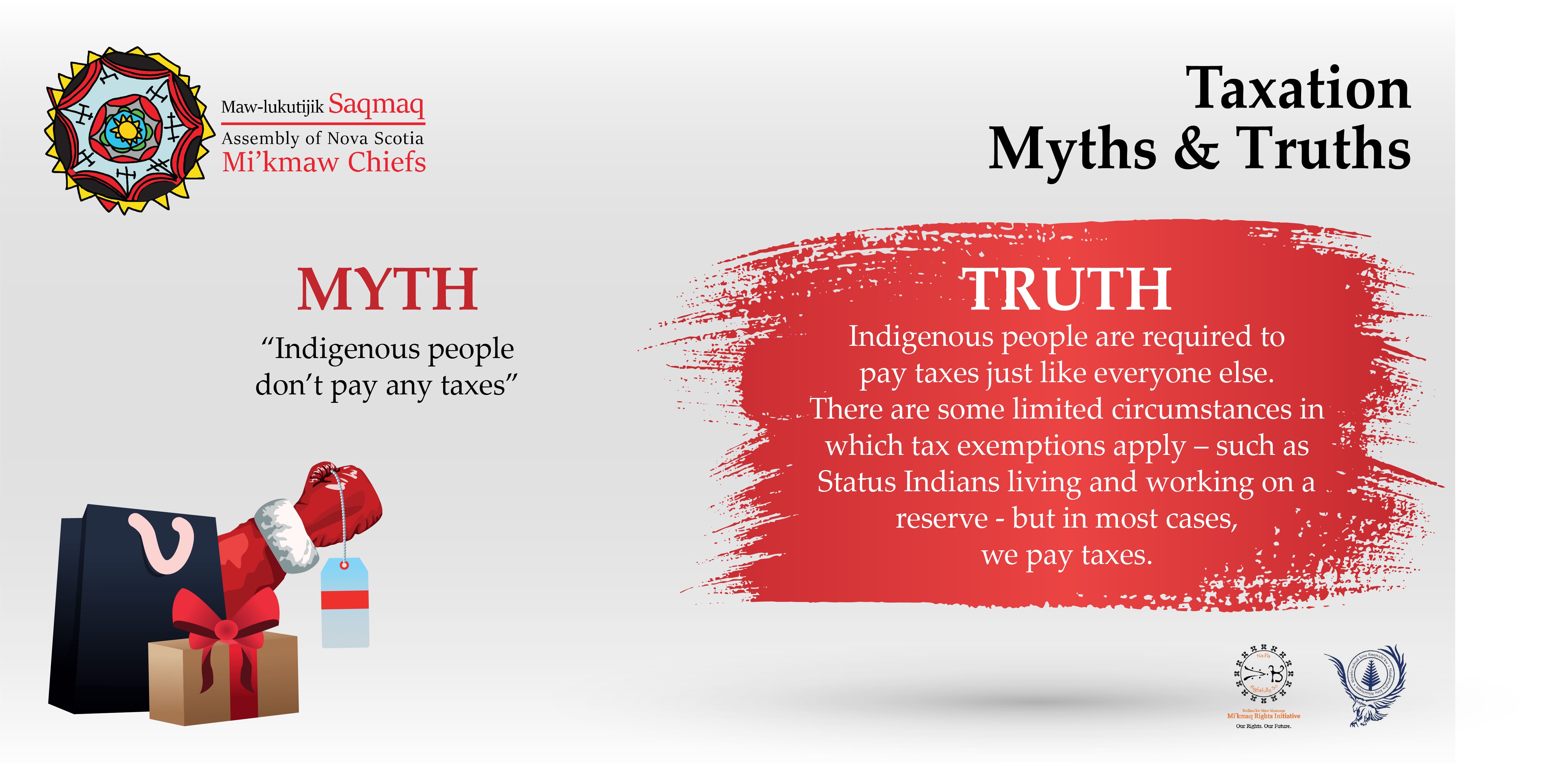
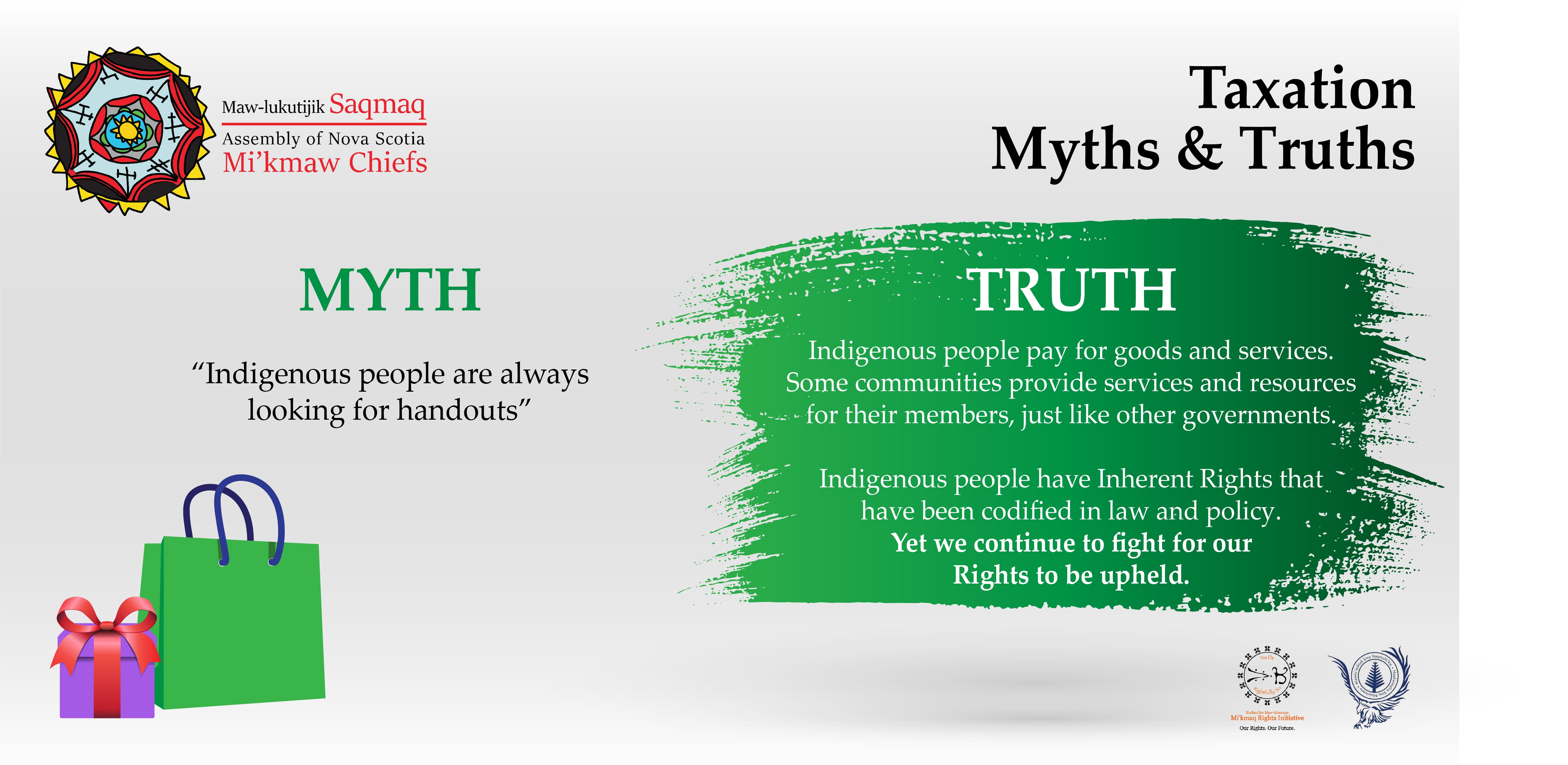

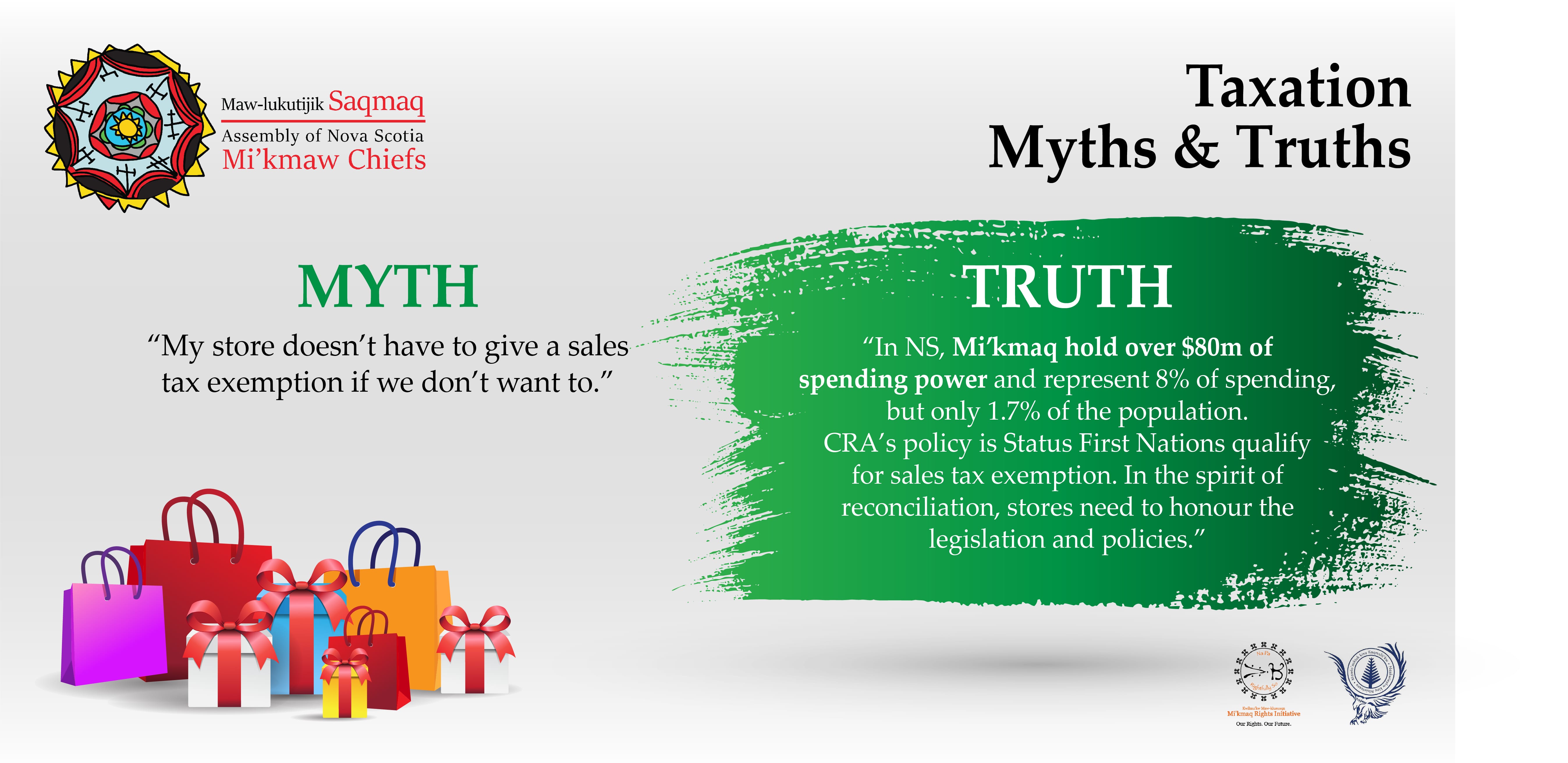
Netukulimk Fisheries | MLF Registration with MLF Liaison Officer Darlene Coulton
- Published: November 22 2021 14:35
Important Notification
The MLF (Moderate Livelihood Fisheries) Liaison Officer Darlene Coulton, will be at the following locations to help assit those interested in MLF complete the registration form. The registration form is important for anyone wishing to participate in the MLF program.
If you wish to complete the registration form and you are able, it is important for you to visit with Darlene at one of the following dates/locations:
- Tuesday, November 23. 2021 at the Shelburne Sub-Office
- Wednesday, November 24, 2021, at the Medway Office
- Wednesday, November 24. 2021, at the Gold River Community Centre
Questions?
Mainland Mi’kmaq Alert System Sign Up Form
- Published: October 18 2021 14:07
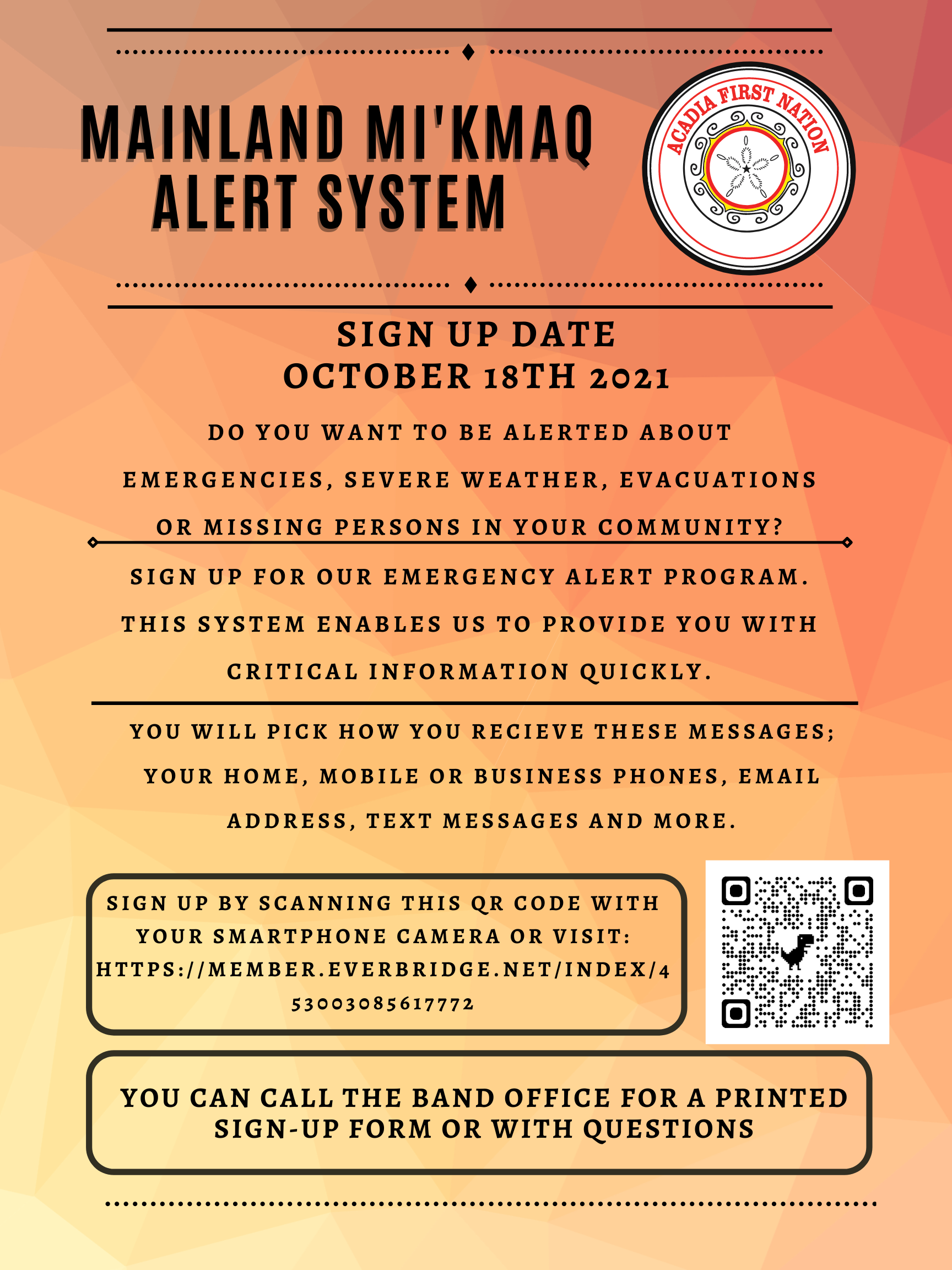
You can sign-up for Everybridge by visiting the URL: https://member.everbridge.net/index/453003085617772.
Or
Please Click Here(196 KB) to download the sign-up form(196 KB) . Please return completed forms to our administrative offices.
Profit Sharing Application for 2021
- Published: September 21 2021 13:48
Please to Click Here download the Profit Sharing 2021 Application(272 KB)
MEDICINE WHEEL SUMMER DAY CAMP
- Published: August 12 2021 09:49

To register for the event; please complete the registration form below:
Summer Camp Registration Form 2021(28 KB)
Moderate Livelihood Fishing Community Sessions | August 2021
- Published: August 10 2021 16:59
